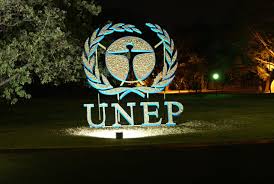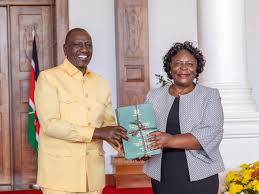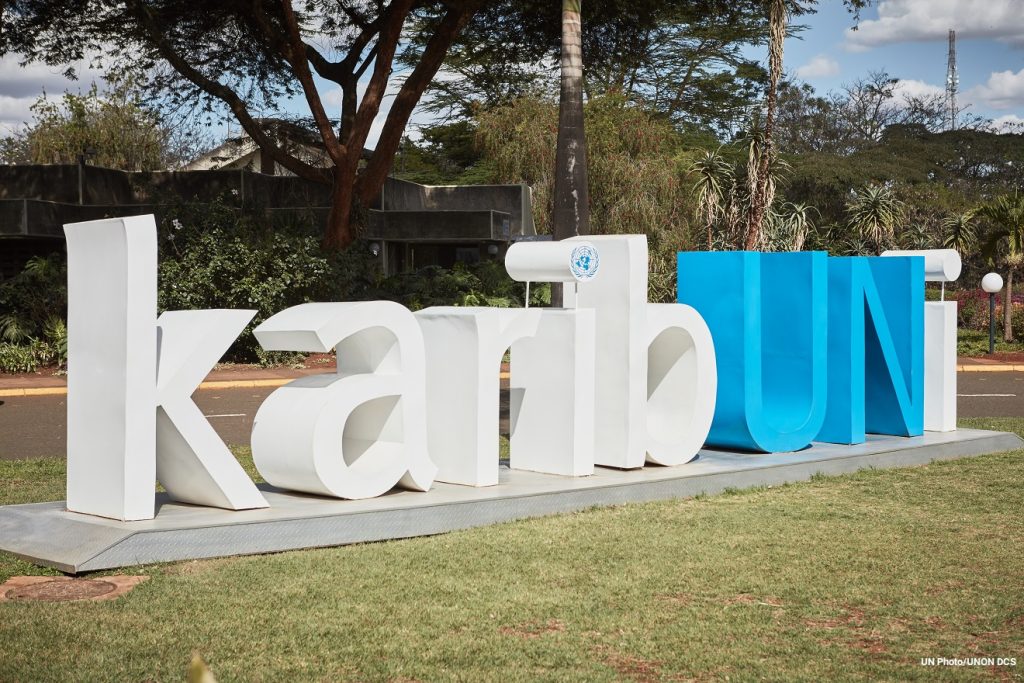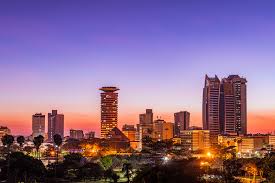By Wahome Ngatia
In our second installment of exploring Nairobi as a hub for diplomacy in the wake of the UN’s plans to expand their operations in Nairobi. We look back at how Nairobi came to host UNEP. UNFPA, UNICEF and UN Women’s global operations are set to move to Nairobi by 2026. As a consequence, the premises at UNON will be increased where the meeting facilities will be increased by 20%. The UNGA gave the greenlight for the building to commence at a cost of $340 million (Ksh 43.8 billion).
On a warm December day in 1972, as diplomats filed out of the United Nations General Assembly in New York, a quiet revolution had just taken place. By a vote sealed in Resolution 2997, the UN had chosen Nairobi, a city barely a decade old as an independent capital, to host the brand-new United Nations Environment Programme (UNEP). For the first time in history, a major UN headquarters would be situated in the Global South. Against the odds—and against formidable rivals like New York, Geneva, and New Delhi—Nairobi had triumphed.
That decision was not inevitable. It was the product of intense lobbying, deft symbolism, and a shifting global mood that sought to give developing countries a greater voice in international governance. Nairobi’s victory changed the city’s destiny, and half a century later, its impact is still felt in Kenya’s economy, diplomacy, and identity.
It’s worth noting that the journey had started in 1965 when Nairobi had unsuccessfully bid to host other UN agencies. But now the Jomo Kenyatta administration had to change tact.

UNEP HQ entrance in Gigiri, Nairobi. Credit | UNEP
The spirit of Stockholm
The story begins in June 1972 at the landmark United Nations Conference on the Human Environment in Stockholm, chaired by the Canadian entrepreneur and environmentalist Maurice Strong. The world was waking up to the urgency of pollution, industrial sprawl, and ecological degradation. Delegates agreed on one bold outcome: to create a new UN body dedicated to the environment.
But where to house it? Convention dictated the usual choices—Geneva, with its dense cluster of UN agencies; New York, the symbolic seat of global diplomacy; or Vienna, then emerging as a hub for international organizations. Yet a coalition of voices from the developing world insisted this new agency must not be born in the North. If the environment was truly a global issue, they argued, its home must reflect the concerns of poorer nations whose forests, rivers, and savannas were being exploited with little say from their governments.
The Kenyan pitch
Enter Kenya’s first president, Jomo Kenyatta, and his foreign policy team led by Mbiyu Koinange, Minister of State for Foreign Affairs and Kenya’s Ambassador to the UN then Joseph Odero-Jowi. Only nine years after independence, Kenya was still crafting its global identity. Hosting UNEP was both audacious and symbolic: Nairobi would stand not only as Africa’s diplomatic voice but as a bridge between the developed and developing world.
Kenya lobbied relentlessly. Its diplomats painted Nairobi as a stable, accessible, and neutral African capital at a time when the continent was still scarred by liberation struggles and coups. The Kenyan delegation offered prime land in Gigiri—then a quiet stretch of countryside just outside Nairobi—and pledged infrastructure support.
Maurice Strong, whose vision extended beyond bureaucratic convention, became a crucial ally. He believed that if UNEP was to succeed, it had to break free from the gravitational pull of Geneva and New York. Locating it in Nairobi, he argued, would give it credibility in the Global South and force the international community to engage more equitably.
The vote that changed history
The battle came to a head in December 1972. At the UN General Assembly, member states debated whether to follow tradition or chart a new course. Wealthier nations leaned toward Geneva, citing convenience. But the momentum had shifted. Developing countries, emboldened by the politics of the Non-Aligned Movement and the spirit of postcolonial assertion, rallied behind Kenya.
Resolution 2997 passed, and UNEP was born in Nairobi. In that moment, Kenya secured not just an institution, but a place in the architecture of global governance.
Why Nairobi, really?
Several factors tipped the scales in Nairobi’s favor:
- Symbolism of the Global South: Choosing Nairobi demonstrated that environmental governance was not a luxury of the West but a shared global concern.
- Stability and neutrality: Kenya projected itself as politically steady in a volatile region, offering a safe and neutral ground.
- Infrastructure promises: The Kenyan government guaranteed land and facilities, making the financial case persuasive.
- Maurice Strong’s advocacy: His belief in de-centering global institutions provided Nairobi with an influential champion at the highest levels.
By comparison, Geneva and New York risked overshadowing UNEP, turning it into a “junior” program among giants. Nairobi, by contrast, offered UNEP a stage of its own.
The impact on Nairobi and Kenya
UNEP’s arrival transformed Nairobi. The Gigiri complex, once open countryside, became the epicenter of international diplomacy in Africa. Hotels, restaurants, and conference facilities sprouted to serve the influx of diplomats, consultants, and NGO staff. The city gained a cosmopolitan flair, with expatriate neighborhoods like Runda and Muthaiga swelling in population.
For Kenya, hosting UNEP boosted its global profile. It gave Nairobi credibility as a mediator in regional crises and a venue for international negotiations. Over the decades, the city has hosted countless summits—from climate talks to peace negotiations—that might otherwise have gone to Geneva or New York.
Economically, the presence of UNEP, later joined by UN-Habitat in 1978, created thousands of jobs and injected millions of dollars into the local economy. Nairobi became a magnet for international NGOs, many of which set up regional headquarters within reach of Gigiri. The ecosystem that emerged—UN agencies, NGOs, think tanks, and embassies—made Nairobi a gravitational center for humanitarian and development work across Africa.
A legacy of contradictions
But UNEP’s presence also spotlighted Nairobi’s contradictions. The manicured lawns of Gigiri often stand in stark contrast to the sprawling informal settlements nearby, where environmental degradation and poor sanitation are daily realities. Some critics argue that while Nairobi benefits from the prestige of hosting UNEP, the city itself has yet to embody the environmental ideals the agency champions.
Yet perhaps that irony is precisely what makes Nairobi a fitting home. The challenges UNEP confronts globally—pollution, climate change, urban sprawl—are etched into the city’s own landscape. Nairobi, in all its dynamism and disparity, mirrors the world’s environmental struggles.
Initially, when UNEP set up shop, there was a glaring communication gap with other UN agencies in the world. UNEP was seen as a competitor rather than a collaborative coordinator of all earth and environmental programs. That was however solved as Nairobi grew in technology, connectivity and its infrastructure advanced.
Looking forward
Half a century on, Nairobi’s victory in 1972 continues to reverberate. The 2023 Africa Climate Summit, hosted in the same city, underscored its enduring role as a diplomatic stage where the Global South negotiates with the North. Competing cities like Addis Ababa and Kigali may seek to challenge Nairobi’s dominance, but history, geography, and symbolism have given Kenya an edge that is difficult to dislodge.
“When UNEP came to Nairobi, it was more than a gift of land or offices,” one veteran diplomat once remarked. “It was Kenya’s passport to the world.”
Conclusion
The decision to place UNEP in Nairobi was born of symbolism, diplomacy, and bold vision. It gave the Global South a seat at the table of environmental governance and redefined Nairobi’s role in the world. The city has since grown into a bustling hub where global crises are debated and humanitarian responses launched.
In 1972, Kenya lobbied for UNEP to come to Nairobi. Fifty years later, it is Nairobi that gives UNEP its global voice. That is the irony—and the triumph—of history.













